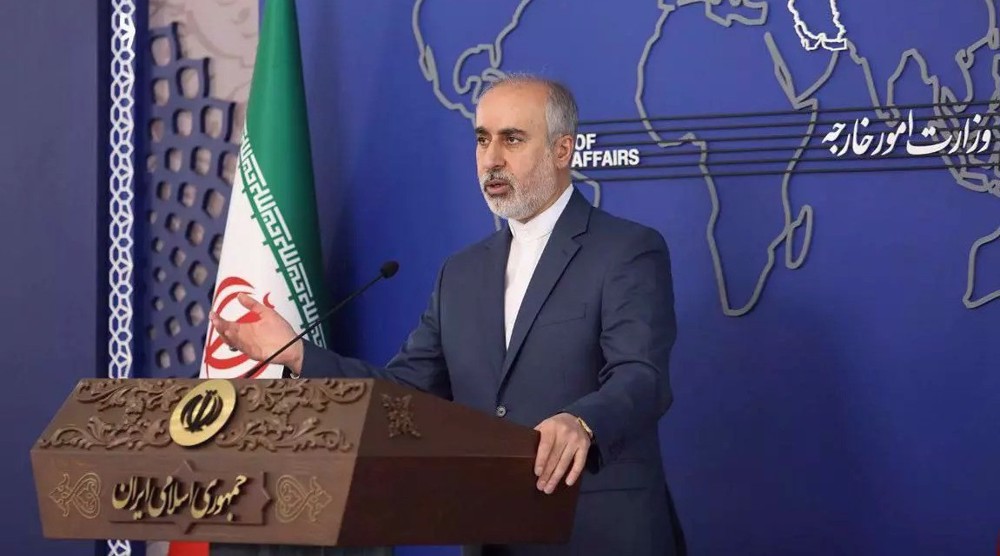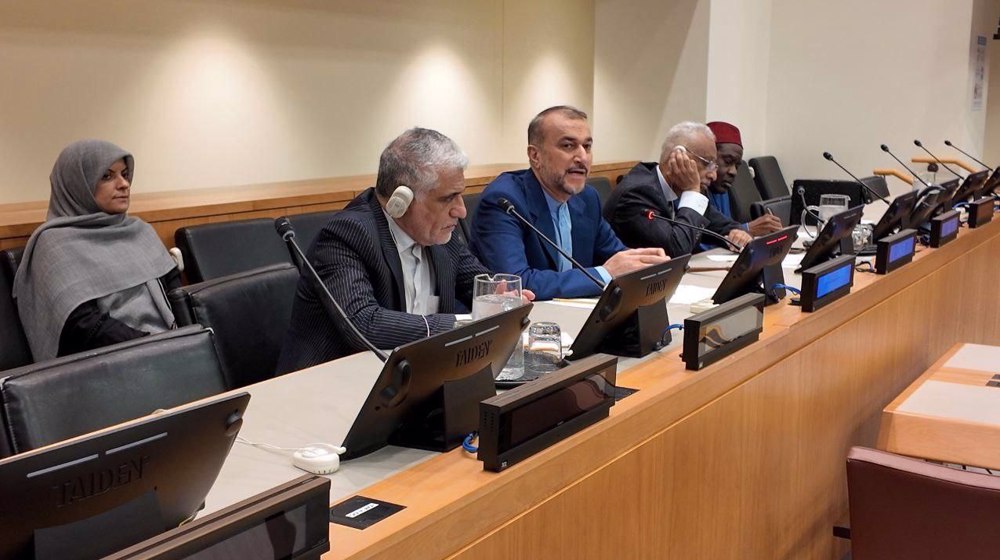Daily Beast exposes fake personas masquerading as anti-Iran online writers
An American publication has revealed the identity of a network of dozens of fake writers and analysts spreading propaganda against Iran.
In a report on Monday, The Daily Beast identified the network of at least 19 fake personas that had spent the past year placing more than 90 opinion pieces in 46 different outlets like the Washington Examiner, Newsmax, RealClear Markets, American Thinker, and The National Interest.
The personas in the network used a mixture of stolen or AI-generated avatars and fake biographies to make them seem more plausible.
One of these fake identities is Rafael Badani, who has introduced himself as a “geopolitical risk consultant and interactive simulation designer” and an “international relations senior analyst” for the Department of Labor.
He stole his profile photos from the blog of an unwitting San Diego startup founder. His LinkedIn profile, which described him as a graduate of George Washington and Georgetown, is equally fictitious, according to the report.
As a Newsmax “Insider” columnist, Badani produced articles that heaped praise on the United Arab Emirates and advocated a tougher approach to Qatar, Turkey, and Iran.
Following the report, the Washington Examiner removed its article written by “Badani,” leaving only an editor’s note, “This op-ed has been removed after an investigation into its provenance and authorship.”
Also on Monday, Twitter suspended Badani’s account along with 15 others after The Daily Beast shared the results of its investigation into the network for violating the company’s “policies on platform manipulation and spam.”
“Using technology, human review, and partnerships with researchers and other independent organizations studying these issues, we work to identify platform manipulation on our service and take action,” a Twitter spokesperson told The Daily Beast in a statement.
“As is standard, if we have reasonable evidence to attribute any activity to a state-backed information operation, we’ll disclose them—following thorough investigation—to our public archive,” it added.
The network has also “placed articles critical of Qatar and supportive of tougher sanctions on Iran in conservative North American outlets like Human Events and The Post Millennial, founded by conservative writer Andy Ngo, as well as Israeli and Middle Eastern newspapers like The Jerusalem Post and al-Arabiya, and Asian newspapers like the South China Morning Post.”
“The personas identified by The Daily Beast were generally contributors to two linked sites, The Arab Eye and Persia Now; had Twitter accounts created in March or April 2020; presented themselves as political consultants and freelance journalists mostly based in European capitals; lied about their academic or professional credentials in phony LinkedIn accounts; used fake or stolen avatars manipulated to defeat reverse image searches; and linked to or amplified each others’ work,” said the report.
Lin Nguyen is another fake identity who introduced herself as an “analyst in South Asian regional security,” and, along with another fake identity, Cindy Sheen, wrote mostly on East Asian issues.
However, said the report, the network soon grew and expanded its focus towards the Middle East.
In February, two websites, The Arab Eye and Persia Now, were registered on the same day and began to acquire a host of contributors.
The Arab Eye describes itself, ironically enough, as a bulwark against “‘Fake News’ and biased narrative” with a mission that “now more than ever it is crucial to hear opinions from the other side of the aisle on matters pertaining to the Middle East,” report added.
Persia Now lists a non-existent London mailing address and an unanswered phone number on its contact form. The apparent editors of the outlets, Sharif O’Neill and Taimur Hall, have virtually no online footprints or records in journalism
In a similar report last year, American news outlet The Intercept revealed the fake identity of an anti-Iran columnist named Heshmat Alavi, who was an imaginary character spawned by the notorious terror group the Mujahedin Khalq Organization (MEK or MKO).
The Intercept made the explosive discovery after reaching out to Hassan Heyrani, a high-ranking defector from the US-backed terrorist cult.
In a blog post published after The Intercept article, the Alavi account admitted for the first time that there was no real Heshmat Alavi, claiming instead to be using a pseudonym.
Following The Intercept’s revelation last year, publications like Forbes, the Daily Caller, and The Diplomat that had published articles by Alavi either removed or updated them to reflect his nonexistence as a person.
US left wing news media called the name “fake,” arguing that American media never check names out.
In an April report, The Intercept said that social media companies were under increasing criticism for getting misinformation out to the public, as in Alavi’s case.
The struggles of Occupied Palestine
Ayatollah Khamenei exalts great Persian poet on Saadi Day
Iran’s Civil Defense examines country’s preparation for potential threats
FBI chief: Chinese hackers targeting critical US infrastructure
New York Times leaked memo on Gaza coverage reveals obfuscation of facts
VIDEO | Press TV's news headlines
Barbados officially announces recognition of Palestine as state
US Senate reauthorizes surveillance bill despite privacy concerns












 This makes it easy to access the Press TV website
This makes it easy to access the Press TV website